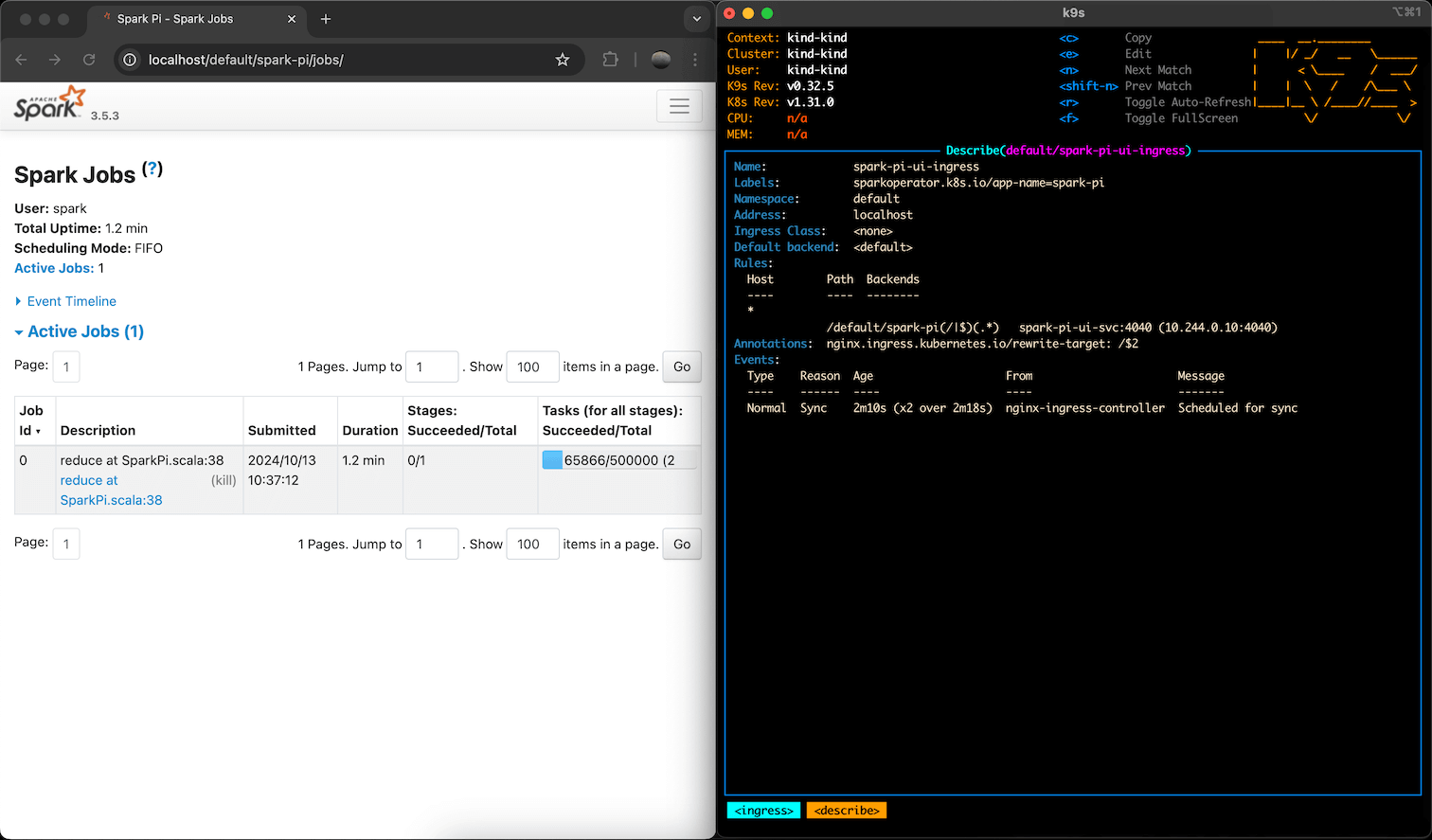This is a quick guide on how to use the Spark operator and NGINX ingress controller to expose the web UIs (also sometimes called the Spark UI or driver UI) of the Spark applications running on your cluster.
1. (Optional) Create a Kind cluster with ingress support
Follow these steps on the Kind docs to create a local Kubernetes cluster with ingress support. This obviously isn't necessary if you already have a cluster to use (e.g. an EKS cluster).
2. Install the Spark operator
spark-values.yaml:
controller:
uiService:
enable: true
uiIngress:
enable: true
# Replace with your cluster's ingress URL. This value is intended for working with Kind.
urlFormat: /{{$appNamespace}}/{{$appName}}
helm install spark-operator spark-operator \
--repo https://kubeflow.github.io/spark-operator \
-n spark-operator --create-namespace \
-f spark-values.yaml
3. Install the NGINX ingress controller
If using Kind, follow their docs and run this command to install a Kind specific manifest:
kubectl apply -f https://raw.githubusercontent.com/kubernetes/ingress-nginx/main/deploy/static/provider/kind/deploy.yaml
If not using Kind, find your setup on the installation guide.
4. Create an application
application.yaml:
apiVersion: sparkoperator.k8s.io/v1beta2
kind: SparkApplication
metadata:
name: spark-pi
namespace: default
spec:
type: Scala
mode: cluster
image: spark:3.5.3
imagePullPolicy: IfNotPresent
mainClass: org.apache.spark.examples.SparkPi
mainApplicationFile: local:///opt/spark/examples/jars/spark-examples.jar
arguments:
- "100000"
sparkVersion: 3.5.3
driver:
cores: 1
memory: 512m
serviceAccount: spark-operator-spark
executor:
instances: 1
cores: 1
memory: 512m
kubectl apply -f application.yaml
5. Access the web UI
After waiting for the application to be submitted by the operator and for the web UI to come up in the driver, you can now access the web UI of the application. If using Kind, this should be http://localhost/default/spark-pi.
